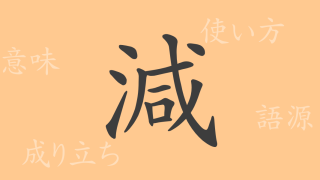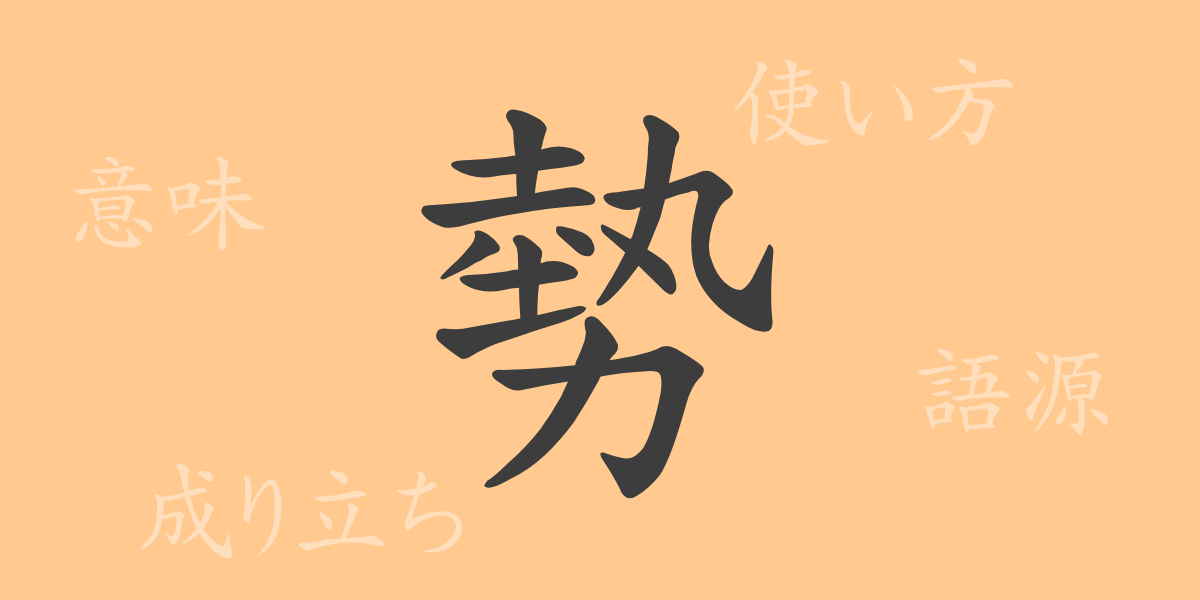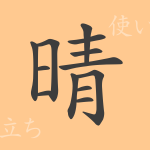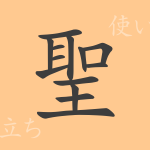The richness of the Japanese language is supported by its unique writing system. Each kanji carries deep meanings and emotions, sometimes as profound as a verse of poetry. In this article, we spotlight the common kanji ‘勢’ (せい), exploring its ancient history, various meanings and uses, and how it integrates into everyday Japanese through idioms and proverbs. Join us on a journey to explore the depth of the Japanese language.
Origins of 勢
The kanji ‘勢’ originated in ancient China and initially represented the force or momentum of an army. Historically, it symbolized the state or momentum of military troops and later came to express power and influence more broadly. Thus, ‘勢’ evolved from a strictly military term to a word describing a wider range of dynamic situations.
Meaning and Usage of 勢
In modern Japanese, ‘勢’ describes the momentum or force of things, as well as the state of vigorously moving forward. It is also used to depict social influence or power dynamics. For example, ‘勢い’ (いきおい) denotes a state of being vigorous, while ‘勢力’ (せいりょく) refers to the strength of a group or organization.
Readings, Stroke Count, and Radical of 勢
‘勢’ is a frequently used kanji in Japanese, each aspect of its usage reflecting the intricacy of the language.
- Readings: On’yomi ‘セイ’, Kun’yomi ‘いきお.い’
- Stroke count: 13 strokes
- Radical: ‘力’, but it also includes the variant radical ‘劦’.
Idioms, Phrases, and Proverbs Using 勢
There are numerous idioms and proverbs that include ‘勢’, each illustrating the rich expressiveness of Japanese. Here are a few examples:
- ‘勢い余って’ (せいいよって) – Describes situations where things proceed beyond expectations.
- ‘勢力を伸ばす’ (せいりょくをのばす) – Means to expand one’s influence or power.
- ‘一気に勢を盛り返す’ (いっきにせいをもりかえす) – Describes a situation where a previously weakened force suddenly regains strength.
Conclusion on 勢
Through this article, we hope you have gained an understanding of the diverse meanings and uses of the kanji ‘勢’, as well as its related idioms and proverbs. ‘勢’ is deeply embedded in the lives of Japanese people, symbolizing the depth of the Japanese language. Mastering expressions that include ‘勢’ can enrich your communication, whether in casual conversation or in business contexts.

























